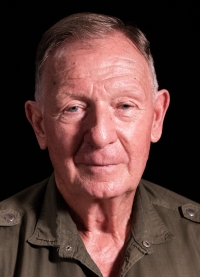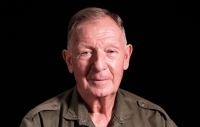If you are going uphill you have to give it all, no matter how it would end
Download image
Vladimír Kánský was born on Januarty 18th of 1940 in Praha. In 1950, as the result of ‘Akce 77’, his father, lawyer Jaroslav Kánský, was forced to leave his profession and start working in “production” i.e. to take a blue-collar job. His maternal great-uncle, Vladimír Haering, served as a military doctor and from 1938 to 1940 he was the chief of the Czechoslovak Red Cross. In 1940, shortly after Vladimír Kánský was born, the great-uncle, who was also Vladimír´s godfather, had been arrested as a resistance member and in 1942 he died while imprisoned by the Nazis. Since 1956, Vladimír Kánský competed as a professional race walker and in 1958 he made Czechoslovak record on the five-kilometre track. During his compulsory military service, he served in Dukla Praha – the army´s sports team. Since 1964, he was not only a dedicated sportsman but also a foreman at the Heritage Conservation construction company; from 1975 to 1987 he collaborated on re-gothisation of the House at the Stone Bell. Since 2010, he began to compete, this time as a veteran. In 2018, he won the veteran world championship in 5000 metres race walk in Malaga, Spain.

